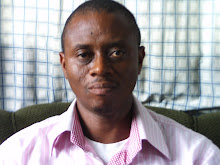The story, characters and the events mentioned in the play are all fictitious or invented; though we know that the events mentioned or described in the play typically typified that of the city of Lagos or the state in general. The playwright himself tells us from the beginning that the whole work is a fiction as he states: “I must confess at this point that characters, locations, names of places and persons mentioned in this play are totally and absolutely imaginary” (Ohwojevwe, 2011 – Playwright’s Preface).
The location described in the play could have been Okokomaiko, Ajangbadi, Ijanikin, Majidun, Imota, Epe, Ikorodu, Ajah, Awoyaya, Ibeju, Ajara, Ibereko, or any of the other adjoining suburbs of Lagos.
The play is structured into three parts: Day One, Day Two and Day Three, though there is also a prologue.
The story begins with a typical family day where the husband and wife (heads of the family) are having a typical large city argument. There is always the notion that the city takes the soul out of the inhabitants as most of the usual things we take for granted with normal people are not so with the inhabitants of big cities. A perfect example, a man’s ability to satisfy his wife’s sexual desires is one of the problems associated with this:
Iya Risi: (Rising up to her full lengthand size she exclaims). Enough of this nonsense and ingredient … A man that cannot perform his domestic duty is not a man… Spare me the … Rubbish, ye ye man, in fact, you are a half man. Is that what I ask you … shameless man.
The domestic duty in question here is the man’s ability to satisfy his wife sexually as the wife goes on to spell this out almost immediately in the course of the play. It’s been said that when a man wants all hell to let loose on him he should short change the woman sexually. This is what we are faced with in the play as the woman tells:
Ani ki o se oun ti okunrin se. I want you to satisfy my sexual urge and you are running away… (Day One Morning).
People not used to this lifestyle could be wondering what a shameless scene this would be in the life of this household but if you are used to the big city no matter what aspect of it you live whether the high or low brow area, the typical day family squabbles most times centres around the issue of the inability of the man to satisfy the wife’s sexual desires. In most homes too, it could be the man now complaining of the wife not giving him his fair share of the family endowment. This is very typical of the homes where the woman is the bread winner. In the big cities where Lagos is no exception, the women are not subjected to the background as they are a force to be reckoned with the productive sector of the economy. They are engaged as petty traders, cleaners, house helps, secretaries, managers and even most times the chief executive officers who provide the much need financial leverage their family and household need.
As we all know, Lagos has moved away from the status an ordinary metropolitan city to that of a mega city (a thickly populated region centring in a metropolis or embracing several metropolises). By a UN projection, Lagos is projected to be about the 5th largest city in the world. If this is the present situation of the city, then we should not be surprised with the events attributed to the city.
The fictitious events in Ohwojevwe’s (2011) Your Domestic Duty exemplify what happens in mega cities all over the world. We are therefore not shocked that such personal and intimate thing could be what one hears in public. It is very peculiar in shanty towns in that are associated with mega cities. In the shanty towns as the one described in Your Domestic Duty, you do not need a ticket to the theatre to witness this scenes. Since the rooms run into themselves and are not insulated from noise from adjourning ones as the whole area or shanty town is one big theatre for staging and restaging plays in real life dimensions.

No comments:
Post a Comment